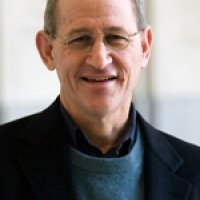Iran’s Nuclear Deal: The Road Ahead
Two experts discussed Iran’s nuclear deal, the possible next steps, and challenges that lie ahead for both the U.S. administration and Iran’s government.
On March 5, 2014 the Middle East Program of the Woodrow Wilson Center hosted a panel discussion “Iran’s Nuclear Deal: The Road Ahead” with Michael Adler, Public Policy Scholar, Woodrow Wilson Center, and Reza Marashi, Research Director, National Iranian American Council. Haleh Esfandiari, Director of the Middle East Program at the Wilson Center, moderated the event.
Adler began his discussion saying that it will be in Vienna where the real talks will take place and the final shape of Iran’s nuclear program will be decided. According to him, the Joint Plan of Action, a pact signed between Iran and the P5+1 countries in Geneva in November 2013, solely set the framework of the negotiations and provided assurance that Iran would not progress significantly with its nuclear program in the interim. Adler noted that the Vienna talks were to set the agenda and discuss the issues that both sides face. However, he believes that the fact there was no written document after the talks demonstrates that there remains a serious divide between the two sides. Adler explained that the disagreements will mostly revolve around the number of centrifuges Iran will have; the plans for the Arak and Fordow facilities, which Iran does not want to dismantle; and the military dimension of Iran’s nuclear program as well as its missile program. He also mentioned that there will be serious discussion regarding the extent of Iran’s research and development capabilities. In his final remarks, Adler explained that during these negotiations both sides will make some concessions or else the negotiations will fail, pointing out the progress that has been made and stressing the challenges ahead. Adler believes that the final deal may contain specifics that the U.S. Congress would not be satisfied with. However, according to him, if the whole package prevents Iran from acquiring nuclear weapons, the U.S. administration would be able to convince both Congress and Israel to accept the deal.
Marashi started his talk by emphasizing that where we stand today was “inconceivable to most people nine months ago,” demonstrating the significance of the progress that has already been made. He namely described the telephone conversation between Iran’s President Hassan Rouhani and President Barack Obama and also Iranian Foreign Minister Mohammad Javad Zarif and Secretary of State John Kerry’s regular contact as “inconceivable.” According to Marashi, there are “no gray areas” and the status quo is not sustainable, which is why, he explained, the P5+1 and Iran signed the Joint Plan of Action. Marashi said that by signing the pact, both sides took a step back from the brink of war. Marashi noted that both President Obama and President Rouhani have taken serious risks, which are essential for a solution to take place. He pointed out the “red lines” that different sides have made and explained that these “red lines” have become “flexible lines” as a result of diplomacy. Marashi added that Iran does not believe it is negotiating from a weak position, stressing that the hard part will be when both sides “realize that neither is as strong or as weak as they thought.” According to Marashi, the road ahead is difficult but what has already happened is unprecedented; therefore diplomacy can work.
By the Middle East Program
Speakers

Former Correspondent in Vienna for Agence France-Presse News Agency
Hosted By

Middle East Program
The Wilson Center’s Middle East Program serves as a crucial resource for the policymaking community and beyond, providing analyses and research that helps inform US foreign policymaking, stimulates public debate, and expands knowledge about issues in the wider Middle East and North Africa (MENA) region. Read more
